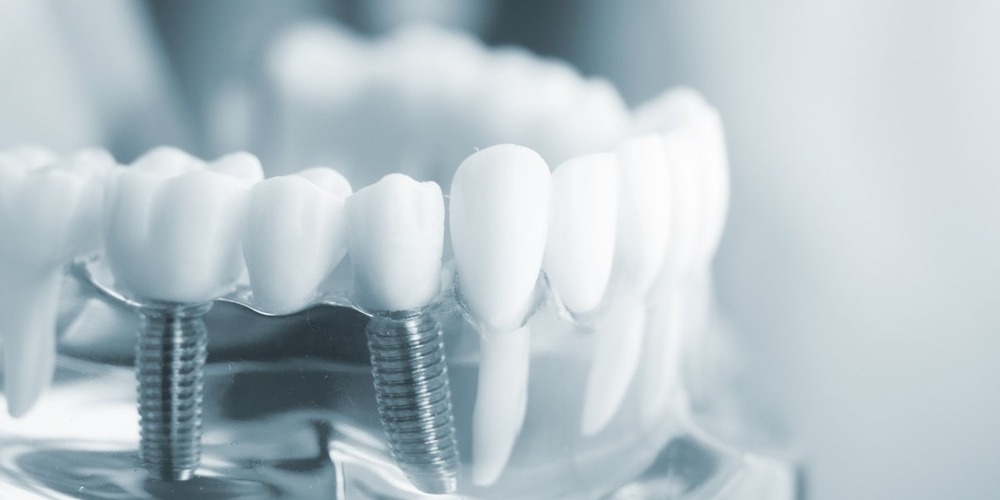
Getting Dental Implants in Turkey: Materials, Timetable, Process
Introduction
When it comes to restoring missing teeth, dental implants have become the go-to solution in modern dentistry. These artificial tooth roots provide a strong foundation for replacement teeth that look, feel, and function like natural ones. For patients seeking dental implant procedures abroad, Turkey has emerged as a popular choice due to its reputation for high-quality treatments and cost advantages.
Why Choose Turkey for Dental Implants?
In recent years, Turkey has seen a surge in international patients traveling for dental implant procedures. This growing trend can be attributed to several factors, including:
- Affordability: Dental implant procedures in Turkey are significantly more cost-effective compared to those in Europe or the US.
- Quality: The quality and brand of materials used in Turkish dental clinics are on par with, if not better than, implants used elsewhere.
- Expertise: Turkish dentists are highly skilled professionals who adopt the latest techniques and technologies in implant dentistry.
By providing an overview of the dental implant materials used in Turkey, this article aims to shed light on why it has become a preferred destination for patients seeking reliable and affordable dental implant treatments. Whether you’re considering a single tooth replacement or full-mouth restoration, understanding the different materials available will empower you to make an informed choice that aligns with your specific needs and preferences.
So let’s dive into the advantages and disadvantages of different dental implant materials commonly used in Turkey!
Advantages and Disadvantages of Different Dental Implant Materials
Exploring the characteristics, durability, and aesthetic qualities of each type of material.
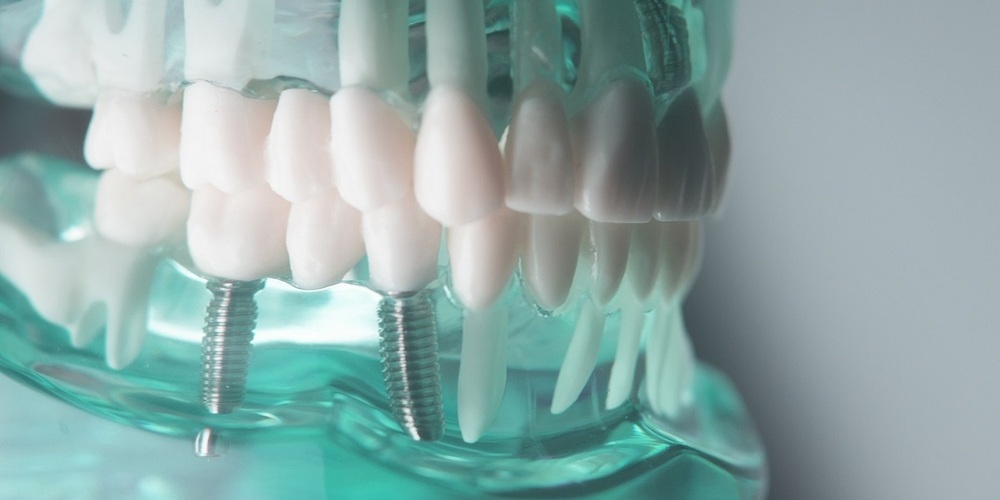
1. Titanium Implants: The Most Commonly Used Dental Implant Material Worldwide
Advantages:
- Excellent Biocompatibility: Titanium implants have an exceptional ability to fuse with the surrounding bone, a process known as osseointegration. This biocompatibility ensures a strong and stable foundation for the implant, reducing the risk of complications and increasing the overall success rate of the procedure.
- Strength and Longevity: Titanium is renowned for its remarkable strength and durability. It can withstand the normal forces exerted during chewing and biting without compromising its structural integrity. This longevity makes titanium implants a reliable long-term solution for tooth replacement.
Disadvantages:
- Allergic Reactions: In rare cases, patients may experience allergic reactions to the metal components of titanium implants. Although titanium implants are primarily composed of titanium (ranging from 89% to 99%), they may also contain small amounts of other metals. It is crucial for patients at risk of allergies to be informed about these components.
- Autoimmune Conditions: Patients with autoimmune conditions should be cautious as ions released from titanium dental implants can potentially cause inflammation and irritation of the gums.
- Aesthetic Concerns: In some cases, the dark color of titanium implants may become visible through thin gums, which can be aesthetically displeasing for certain patients.
As the most commonly used dental implant material worldwide, titanium offers numerous advantages that contribute to its widespread popularity among both patients and dentists. Its excellent biocompatibility ensures successful integration with the bone, while its strength and longevity provide a reliable solution for tooth replacement. While no major disadvantages have been identified thus far, it is crucial to seek professional advice to ensure the best possible outcome for your dental implant treatment.
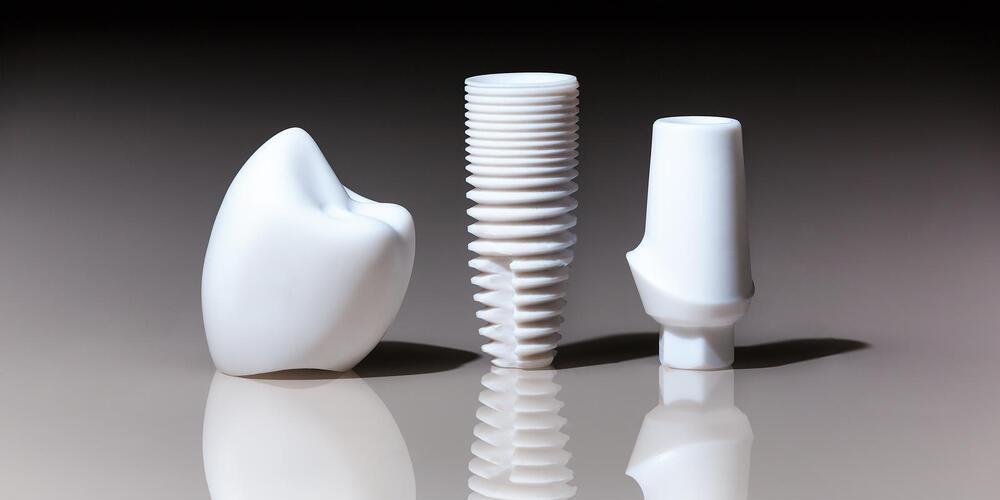
2. Zirconia Implants: A Promising Alternative to Titanium
The use of zirconia implants as an alternative to titanium has gained attention in recent years due to its unique properties and potential benefits. While titanium implants remain the gold standard, zirconia offers some distinct advantages for certain patients.
Advantages:
- White color that mimics natural teeth: One of the key advantages of zirconia implants is their white color, which closely resembles natural teeth. This makes them an appealing option for individuals who prioritize aesthetics and desire a seamless blend with their existing teeth.
- Potential for better gum tissue attachment: Zirconia implants have shown promise in promoting improved gum tissue attachment compared to traditional titanium implants. This can contribute to enhanced oral health and a more natural appearance.
Disadvantages:
- Higher risk of fracture compared to titanium: While zirconia implants offer several advantages, they are also associated with a higher risk of fracture when compared to titanium. This is an important consideration, especially for individuals with strong occlusal forces or those who grind their teeth. However, advancements in zirconia materials and design have led to increased strength and durability, reducing the likelihood of fracture.
It’s important to note that the choice between titanium and zirconia implants should be based on individual factors such as aesthetic preferences, oral health conditions, and functional needs. Consulting with a qualified dentist who can evaluate your specific situation is crucial in determining the most suitable treatment option for you.
3. Stainless Steel Implants: Limited Use in Permanent Tooth Replacement
Advantages:
- High strength: Stainless steel implants are known for their excellent mechanical properties, making them highly durable and long-lasting. They can withstand the forces exerted during chewing and biting, providing stability and support for the prosthesis.
- Corrosion resistance: Stainless steel implants are resistant to corrosion, which is an important factor in ensuring the longevity of the implant. This resistance helps prevent the implant from deteriorating over time, maintaining its structural integrity.
Disadvantages:
- Poor aesthetics: One of the main drawbacks of stainless steel implants is their appearance. They have a metallic gray color, which may not be visually appealing for patients seeking a more natural-looking smile. However, it’s worth noting that stainless steel implants are typically used in areas where aesthetics are less of a concern, such as in posterior regions where they are not visible when smiling.
- Allergic reactions: While rare, some individuals may experience allergic reactions to stainless steel due to its composition. It contains small amounts of nickel, which can cause hypersensitivity in certain individuals. Dentists should carefully assess patients for any known allergies before considering stainless steel implants as a treatment option.
Stainless steel implants have limited use in permanent tooth replacement due to their aesthetic limitations and potential for allergic reactions. However, they can still be beneficial in specific cases where strength and corrosion resistance are of utmost importance. Dentists will consider these factors along with the patient’s individual needs and preferences when determining the most suitable implant material for their case.
4. Cobalt-Chromium Alloy Implants: Strong and Stable Option for Prosthesis Support
Cobalt-chromium alloy implants, also known as CoCr implants, are another popular choice in implant dentistry. These implants are lauded for their exceptional strength and stability, making them an ideal option for supporting dental prostheses such as bridges and dentures. The high metal hardness of these implants translates into excellent resistance against wear and tear, ensuring a longer lifespan compared to other materials. Additionally, the biocompatibility of cobalt-chromium alloy is generally favorable, with a low risk of allergic reactions or adverse tissue responses.
Despite these advantages, it’s important to note that CoCr implants can be more expensive than other options due to the higher cost of the alloy itself and the specialized manufacturing processes involved. Dentists must carefully consider the patient’s specific needs and budget when recommending this type of implant.
The success of a dental implant is not solely dependent on the material used; it also relies on factors such as proper placement, osseointegration, and post-operative care. Dentists will take all these aspects into account when selecting the most appropriate implant material for their patients.
Advantages:
- Good mechanical properties: Cobalt-chromium alloy implants are known for their high strength and durability. This makes them a reliable choice for patients who require strong support for their dental prostheses, such as full arch bridges or dentures. The robustness of these implants ensures that they can withstand the forces exerted during daily activities like chewing and speaking.
- Suitable for patients with metal allergies: Unlike stainless steel implants that contain nickel, cobalt-chromium alloy implants are hypoallergenic. This means that they are less likely to cause allergic reactions in individuals with metal allergies or sensitivities. Patients who have had previous adverse reactions to other metals can opt for cobalt-chromium alloy implants with confidence.
Disadvantages:
- Potential for galvanic corrosion when combined with other metals: Galvanic corrosion can occur when two different metals come into contact within the oral cavity. In the case of cobalt-chromium alloy implants, if they are placed in close proximity to other metallic restorations or dental materials, such as gold crowns or amalgam fillings, there is a risk of galvanic corrosion. This can lead to accelerated deterioration of the implant material over time. Dentists must carefully consider the patient’s existing dental work and materials to minimize the likelihood of galvanic corrosion.
Overall, cobalt-chromium alloy implants offer excellent strength and stability for prosthesis support. They are particularly suitable for patients who require robust implant options and have metal allergies. However, it is crucial to consider the potential risk of galvanic corrosion when combining cobalt-chromium alloy implants with other metals in the oral cavity. Dentists will assess each patient’s unique situation to determine the most appropriate implant material and minimize any potential complications.
Choosing the Right Dental Implant Material for Your Case
When it comes to selecting the right dental implant material for your case, there are several factors to consider. Making an informed decision based on these factors can greatly impact the overall success and longevity of your implant treatment. Here are some key points to keep in mind:
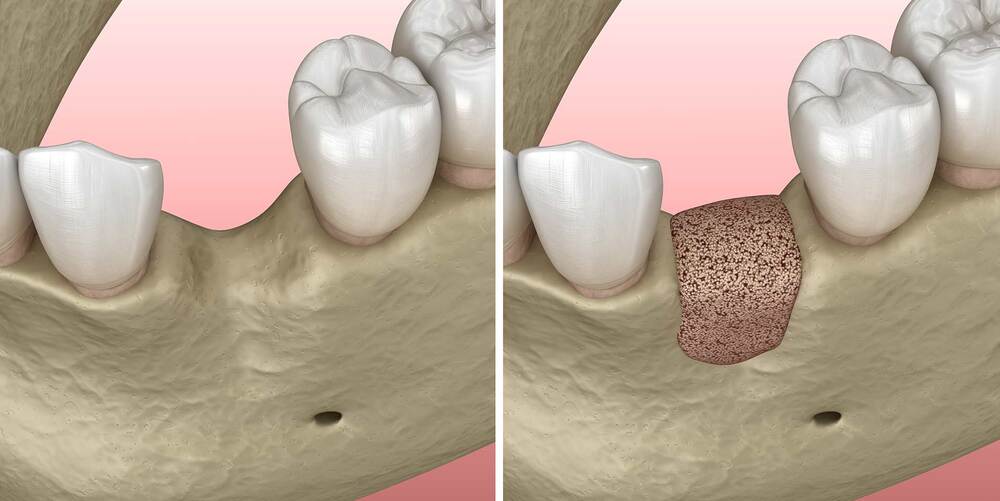
1. Jawbone condition
The condition of your jawbone plays a crucial role in determining the type of dental implant material that would be suitable for you. If you have a strong and healthy jawbone, you may have more options available. However, if your jawbone is weak or lacks density, additional procedures such as bone grafting may be required before implant placement.
2. Aesthetic preferences
Everyone has different aesthetic preferences when it comes to their dental restorations. Some materials may offer a more natural-looking appearance, while others may be more durable but less aesthetically pleasing. Discuss your preferences with your dentist to ensure that the chosen material aligns with your desired outcome.
3. Budgetary constraints
Cost is an important consideration for many patients seeking dental implant treatment. Different materials come with varying price tags, so it’s essential to discuss the financial aspect with your dentist. Keep in mind that while some materials may be more affordable upfront, they may require more maintenance or replacement over time.
It’s worth noting that dentists will consider these factors along with their professional expertise and knowledge of each material’s pros and cons when recommending a suitable option for you.
Remember, choosing the right dental implant material is crucial for ensuring the long-term success and functionality of your implants. It’s important to have a detailed discussion with your dentist to understand how each material aligns with your specific needs and goals.
The Role of Quality Assurance in Dental Implant Procedures
When it comes to dental implant procedures, ensuring the use of high-quality materials is essential for long-term success and patient satisfaction. In Turkey, dental clinics prioritize quality assurance to provide patients with the best possible outcomes. Here are some key points about the role of quality assurance in dental implant procedures:
Certified Materials
Reputable dental clinics in Turkey use certified dental implant materials that meet international standards. These materials undergo rigorous testing and quality checks to ensure their safety and efficacy.
Adherence to International Standards
Dental clinics in Turkey follow strict protocols and guidelines set by international organizations like the International Organization for Standardization (ISO) and the American Dental Association (ADA). This ensures that every step of the implant procedure, including material selection, meets the highest standards of quality.
Collaboration with Trusted Suppliers
Dental clinics in Turkey work closely with trusted suppliers who provide them with top-quality dental implant materials. These suppliers have a reputation for delivering reliable products that have been thoroughly tested and approved.
Quality Control Measures
Dental clinics implement stringent quality control measures to guarantee the integrity of the dental implant materials they use. This includes thorough inspections, traceability systems, and adherence to sterilization protocols to prevent any compromise in material quality.
By prioritizing quality assurance, dental clinics in Turkey aim to provide patients with peace of mind knowing that they are receiving treatment using safe and reliable dental implant materials. This commitment to quality contributes to the overall success and longevity of dental implant procedures.
Understanding the Timeline

Embarking on the journey of getting dental implants in Turkey involves a structured timeline, ensuring both quality and successful integration. The process typically unfolds in two primary stages, spanning approximately 3 to 6 months.
Initial Placement and Integration Period
The first stage begins with the implant placement into the jawbone. This is followed by a crucial healing period, usually lasting about 3 months, during which the implant integrates with the bone – a process known as osseointegration.
Finalization and Restoration
Once the healing is complete and successful integration is confirmed, the second stage commences. This involves attaching the abutment and the dental prosthesis or crown, completing the restoration process.
Throughout this period, patients are advised to have regular check-ups for optimal healing and to address any concerns promptly. The entire process, from the initial surgery to the final restoration, is characterized by high-quality care and advanced dental practices, hallmark traits of dental treatments in Turkey.
Post-Operative Care Recommendations for Long-Term Implant Success
After undergoing dental implant surgery, proper post-operative care is crucial for ensuring the long-term success of the implants. Here are some key recommendations for patients to follow:
Adhering to Dentist’s Instructions
It is essential to carefully follow all post-operative instructions provided by your dentist. These instructions may include guidelines for managing discomfort, dietary restrictions, and the use of prescribed medications.
Maintaining Good Oral Hygiene
Patients should prioritize good oral hygiene practices to prevent complications and promote healing. This includes gentle brushing, flossing, and using an antimicrobial mouthwash as recommended by the dentist.
Regular Dental Check-Ups
Scheduling regular follow-up appointments with the dentist is vital for monitoring the healing process and ensuring that the implants are integrating well with the surrounding tissues.
By diligently following these post-operative care recommendations, patients can maximize the longevity and success of their dental implants, leading to improved oral health and overall well-being.
Addressing Safety Concerns About Dental Implant Treatment in Turkey
When considering dental implant treatment in Turkey, it’s natural for patients to have concerns about the quality and safety of the procedures. However, it’s important to address these concerns and provide reassurance about the high standards followed in Turkish dental clinics. Here are some key points to consider:
- Certified Clinics: Dental clinics in Turkey adhere to international standards and regulations for implant surgery. It’s crucial to choose a reputable clinic that has a track record of delivering safe and successful dental implant treatments.
- Experienced Professionals: Turkish dental professionals are highly skilled and experienced in performing dental implant procedures. They undergo rigorous training and stay updated with the latest advancements in implant dentistry.
- Quality Materials: The materials used for dental implants in Turkey are of top-notch quality, comparable to those used in Europe or the US. The cost advantage allows clinics to offer competitive prices without compromising on the quality of the materials.
- Advanced Technology: Turkish dental clinics are equipped with state-of-the-art facilities and advanced technology that ensure precise diagnostics, planning, and implant placement. This contributes to the overall safety and success of the treatment.
- Patient Reviews: Reading reviews and testimonials from patients who have undergone dental implant treatment in Turkey can provide valuable insights into their experiences and help alleviate any safety concerns.
By addressing these points, patients can gain confidence in the quality and safety of dental implant treatments offered in Turkey. It’s essential to conduct thorough research, choose a reliable clinic, and consult with experienced professionals to ensure a successful outcome for your implant journey.
Choosing a Reliable Dental Clinic for Your Implant Journey
When considering dental tourism and selecting a clinic in Turkey for your implant journey, there are key factors to keep in mind to ensure a successful and safe experience:
1. Reputation and Qualifications:
Research the reputation and qualifications of the dental professionals at the clinic. Look for certifications, affiliations with international dental organizations, and patient reviews to gauge the clinic’s reliability.
2. Technology and Facilities for Implant Procedures:
Evaluate the technology and facilities available at the clinic for implant procedures. State-of-the-art equipment, such as advanced 3D imaging for precise implant placement, and an in-house lab for custom prosthetics can significantly enhance the quality of treatment.
Choosing a reliable dental clinic is crucial for ensuring the success and longevity of your implant treatment. By carefully assessing these considerations, you can make an informed decision that aligns with your expectations and ensures high-quality care during your implant journey in Turkey.
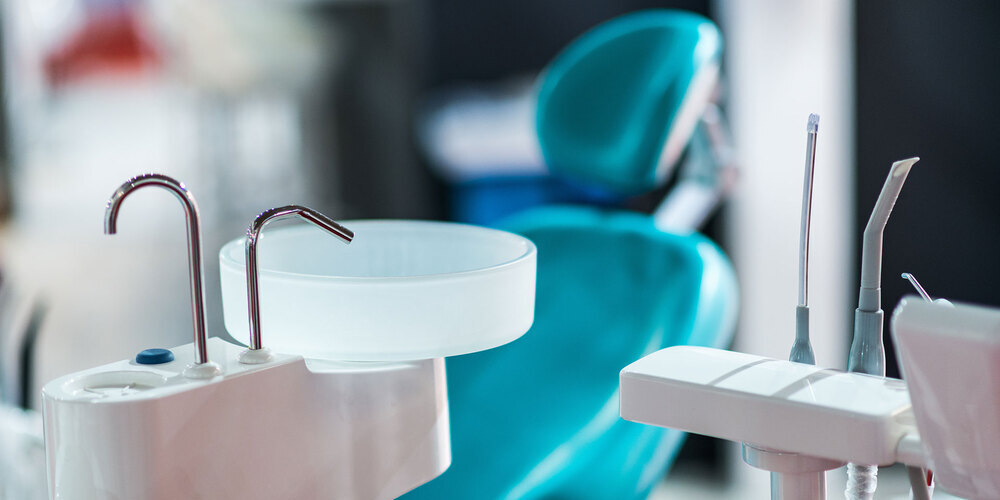
The FineUp Clinic Advantage
When it comes to dental care in Turkey, FineUp Clinic stands out as a leading dental clinic that specializes in high-quality implant procedures. With a reputation for excellence, FineUp Clinic offers patients a range of advantages that make it a top choice for dental implants in Turkey.
State-of-the-Art Facilities
At FineUp Clinic, patients can expect state-of-the-art facilities that are equipped with the latest advancements in dental technology. The clinic boasts its own lab, allowing for efficient and precise implant procedures. Additionally, FineUp Clinic utilizes advanced 3D modeling devices that aid in accurate implant placement, ensuring optimal results for patients.
Partnership with Bego
It is worth noting that FineUp Clinic has been selected as the Support Clinic of Bego, a renowned dental implant materials provider. This partnership further emphasizes the clinic’s commitment to using high-quality materials and adhering to international standards.
With its focus on quality and innovation, FineUp Clinic offers patients the assurance that they are receiving top-notch care. The clinic’s dedication to excellence sets it apart as a trusted destination for individuals seeking dental implants in Turkey.
Next, we will delve into the importance of quality assurance in dental implant procedures and how it contributes to successful outcomes.
Conclusion
When it comes to dental implants, Turkey offers a compelling combination of affordability and quality. By choosing the right materials for your implant treatment, you can ensure long-term oral health and satisfaction.
Here are some key takeaways from this article:
- Dental implants in Turkey provide a cost-effective option without compromising on quality. The materials used in Turkish clinics are of the same high standard as those used in Europe or the US.
- The FineUp Clinic stands out as a leading dental clinic in Turkey, specializing in high-quality implant procedures. With state-of-the-art facilities and advanced 3D modeling devices, they prioritize precision and accuracy.
- Choosing the right material is crucial for the success and longevity of your dental implant. Factors such as jawbone condition, aesthetic preferences, and budgetary constraints should be considered when making this decision.
- Following post-operative care recommendations and maintaining good oral hygiene are essential for long-term implant success.
- Dental tourism in Turkey is a popular choice for many patients seeking dental implant treatment. Reputation, qualifications of dental professionals, and available technology and facilities are important considerations when selecting a reliable clinic.
If you’re considering dental implants, don’t overlook the benefits of getting treatment in Turkey. Contact FineUp Clinic to schedule a consultation and explore your dental implant options. Your journey to a healthy smile starts here.
